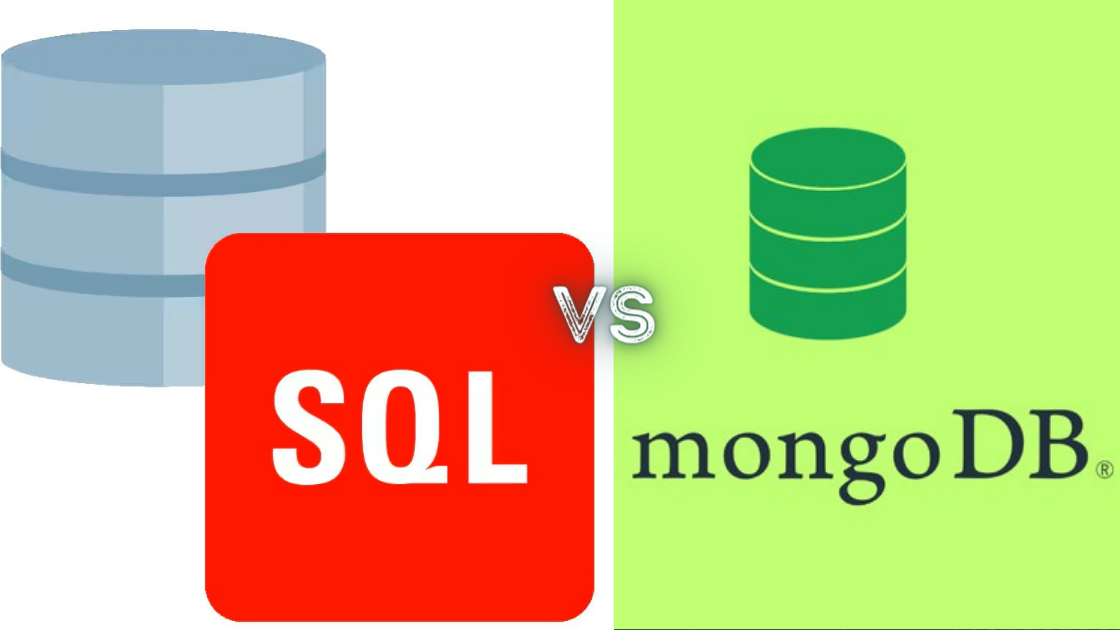MongoDB vs SQL: Choosing the Right Database for Your Project
- April 23, 2024
- nschool
- 0

Introduction
SQL (Structured Query Language) and MongoDB are both popular database systems, but they differ significantly in their approach to storing and managing data. SQL represents a relational database management system (RDBMS), whereas MongoDB stands as a NoSQL database. Despite their differences, both systems serve the purpose of storing and retrieving data, each with its own set of strengths and use cases. So, this post aims to help our readers understand why SQL and MongoDB are important today and how they’re used.
What is SQL?
SQL (Structured Query Language) is a specific language used in programming and managing relational databases. It provides a standardized way to interact with databases, allowing users to query, manipulate, and manage data stored in tables. SQL is widely adopted in various industries and plays a fundamental role in data management and analysis.
Key Features of SQL
SQL, is a powerful tool for managing and querying structured data. It offers a range of key features that make it indispensable in database management. Let’s explore some of these features:
- ACID (Atomicity, Consistency, Isolation, Durability) transactions, ensuring reliable data operations.
- It allows for complex queries, including joins, subqueries, and aggregate functions, enabling powerful data analysis.
- SQL databases enforce referential integrity through foreign key constraints, maintaining data consistency.
- It has been around for decades, resulting in a mature ecosystem with extensive documentation, tools, and community support.
When to Use SQL?
SQL serves as the cornerstone for managing relational databases efficiently. It finds its niche in projects characterized by structured data with clearly defined relationships between different entities. When considering the implementation of SQL, several factors delineate its appropriateness:
- Structured data with well-defined relationships between entities.
- Complex queries involving joins, subqueries, and aggregations.
- Transactions and ACID (Atomicity, Consistency, Isolation, Durability) guarantees to maintain data integrity.
- Robust security features, mainly including role-based access control and encryption.
Advantages of SQL
In the advantages of SQL, we’ll explore its robust data consistency via ACID transactions, its efficiency in handling complex queries, and the support provided by its mature ecosystem for seamless development.
- Strong data consistency and integrity ensured by ACID transactions.
- Comprehensive support for complex queries and data manipulation operations.
- A well-developed ecosystem boasting comprehensive documentation, tools, and robust community support.
- Compatibility with various database management systems (DBMS) and platforms, offering flexibility in deployment.
What is MongoDB?
MongoDB, renowned for its flexibility, scalability, and performance, is a widely used NoSQL database. It stores data in JSON-like documents, making it suitable for projects with evolving or unstructured data requirements. MongoDB’s document-oriented model allows for fast development and iteration, especially in agile environments.
Key Features of MongoDB
Let’s explore the distinctive features that make MongoDB stand out as a versatile database system, offering efficiency for modern data management needs.
- Flexible schema design, allowing for dynamic and nested data structures within documents.
- Horizontal scalability through shading, enabling distributed storage and high throughput.
- A versatile query language supporting intricate queries, aggregations, and geospatial operations.
- Replication for high availability and fault tolerance, ensuring data durability and reliability.
When to Use MongoDB?
MongoDB, a premier database, offers versatility for various applications, providing the flexibility, scalability, and agility essential in modern software development.
- Require flexible schema design to accommodate evolving or unpredictable data structures.
- Need horizontal scalability to handle large volumes of data and high-traffic applications.
- Prioritize development speed and agility, allowing for rapid iteration and adaptation to changing requirements.
- Benefit from document-oriented data modeling, especially for use cases such as content management, real-time analytics, and IoT applications.
Advantages of MongoDB
MongoDB, as a NoSQL database, offers several advantages over traditional relational databases, making it a popular choice for modern application development.
- Facilitating rapid development and iteration through its adaptable schema design.
- Horizontal scalability enables effortless expansion to support increasing data and user demands, ensuring seamless growth as your application evolves and your audience expands.
- High performance and low latency, particularly for read-heavy workloads and real-time analytics.
- Comprehensive features for data replication, shading, and geospatial indexing, supporting diverse use cases and industries.
Difference between MongoDB and SQL
Feature | MongoDB | SQL |
Data Model | Document-oriented, flexible schema | Tabular, rigid schema |
Query Language | MongoDB Query Language (MQL) | Structured Query Language (SQL) |
Schema | Schema-less | Predefined schema |
Relationships | No explicit support for joins | Joins and foreign key relationships |
Scalability | Horizontal scaling via sharding | Vertical scaling by adding resources or sharding |
Transactions | Limited support for multi-document transactions | ACID-compliant transactions |
Consistency | Eventual consistency by default | Strong consistency |
Data Integrity | Relaxed consistency with eventual consistency | Strict consistency with ACID transactions |
Indexing | Rich support for various index types | B-tree indexes, full-text search, spatial indexes |
Use Cases | Agile development, unstructured data | Structured data, relational integrity, complex queries |
Examples | Content management, real-time analytics | Finance, CRM, ERP, inventory management |
Choosing Between MongoDB and SQL
Certainly! Here are some additional points to consider when choosing between MongoDB and SQL for your project:
Data Structure Flexibility :
MongoDB allows for flexible schema design, making it easier to adapt to changing data requirements without the need for complex migrations. This flexibility is beneficial for projects where the data structure evolves over time or where there is a variety of data types.
Scalability :
MongoDB’s distributed architecture and horizontal scaling capabilities make it well-suited for handling large volumes of data and high throughput workloads. It can easily scale out across multiple servers to accommodate growing data needs, making it a preferred choice for applications experiencing rapid growth.
Complex Queries and Aggregations :
While SQL databases excel at performing complex joins and aggregations, MongoDB’s query language and aggregation framework offer powerful capabilities for manipulating and analyzing data. It provides features like aggregation pipelines and map-reduce for executing sophisticated queries and analytics tasks.
Geospatial Capabilities :
MongoDB includes robust support for geospatial data and queries, making it a preferred choice for location-based applications. It offers geospatial indexes and operators for performing spatial queries such as finding nearby locations or calculating distances.
Transaction Support :
Historically, SQL databases have been known for their strong support for ACID transactions, ensuring data consistency and reliability. MongoDB introduced multi-document transactions in recent versions, providing similar transactional guarantees for complex operations across multiple documents.
Community and Ecosystem :
Both MongoDB and SQL databases have large and active communities with extensive documentation, tutorials, and resources available. Consider factors such as community support, available integrations, and third-party tools when evaluating the ecosystem surrounding each database.
Development and Maintenance Overhead :
SQL databases typically require upfront schema design and modeling, which can be time-consuming but provide clarity and structure. MongoDB’s schema-less nature can reduce upfront development overhead but may require more attention to data validation and schema management as the application evolves.
Security and Compliance :
Both MongoDB and SQL databases offer robust security features such as authentication, authorization, encryption, and auditing. Consider factors such as compliance requirements, access control mechanisms, and security best practices when evaluating the security posture of each database. By carefully assessing these factors and understanding your project’s specific requirements, you can make an informed decision on whether MongoDB or SQL is the right database for your project.
Conclusion
MongoDB and SQL each offer distinct advantages based on project requirements. MongoDB’s flexibility and scalability suit agile environments with evolving data needs, while SQL’s structured approach ensures stability and reliability, particularly for applications with strict data integrity requirements. Careful consideration of factors like data structure, performance, and security is essential in selecting the appropriate database solution. Whether prioritizing flexibility, scalability, or transactional reliability, choosing the right database lays the groundwork for successful application development and data management. The MongoDB and SQL Course in Coimbatore taught by Nschool Academy covers a lot of material and teaches students excellent web design and development abilities that will help them succeed in their careers.

